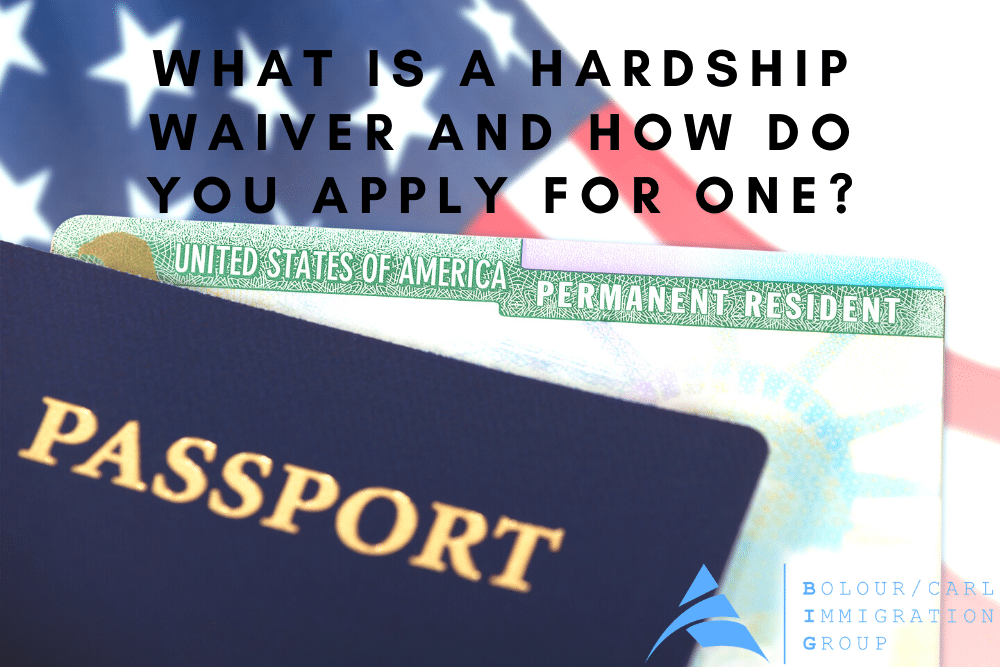
If you are undocumented and entered the U.S. without inspection, but your spouse or parent is a U.S. citizen or permanent resident, you may be able to obtain your green card by proving that your removal from the country would result in extreme hardship to your qualifying family members. Applying to waive inadmissibility based on the grounds of your unlawful presence in the United States is an arduous process that can take upward of two years, and there is no guarantee of success. However, for many individuals who are undocumented and wish to change their status, pursuing a hardship waiver is the best way forward.
Why a Hardship Waiver is Necessary
As you are not in the United States legally, your interview for a family-based or marriage-based green card must take place at a U.S. embassy or consulate, usually in your country of origin. But the consular office may block your return based on your history of being in the United States unlawfully. In fact, if you spent more than 180 days without legal status in the United States, you could be barred from returning for three years, and if you spent more than a year, you could be barred for 10 years. Securing a provisional waiver of the unlawful presence grounds of inadmissibility is a solution: You can get a yes or no answer on whether your unlawful presence will be forgiven before you leave the country for your green card interview. (Note that if you entered the United States illegally but have been here for less than 180 days, you have the option of returning to your home country and applying for a marriage-based or family-based green card through a U.S. consulate, just as someone who is living abroad could do.)
First Step: Form I-130
The first step in the hardship waiver application process is for your spouse (or parent) to file Form I-130, Petition for Alien Relative, to establish their relationship with you. Your spouse will be asked to provide his or her background information, including family, address and employment history and ethnicity, and details about you, including your address and information on your employment and entry into the United States, as well as details about your marriage. Along with Form I-130, you, as the spouse seeking legal status, must fill out and submit Form I-130A, Supplemental Information for Spouse Beneficiary, which takes a deeper dive into your background, asking for details on your parents and prior employment and addresses.
Next Step: Form I-601A
Once your I-130 petition has been approved, you can move on to Form I-601A, Application for Provisional Unlawful Presence Waiver. Before submitting the application, you must pay the Immigrant Visa Processing Fee (a receipt is required with your Form I-601A submission). You must also notify the National Visa Center (NVC) that you are applying for the waiver so that it will not schedule your immigrant visa interview until after a decision has been reached on your waiver request. Form I-601A asks for details about your immigration history and status, your qualifying relative and his or her citizenship status, and any criminal history, and must be accompanied by various supporting documents. You will also have to prove “extreme hardship,” which is not clearly defined and is largely open to the examiner’s subjective judgment, based on the strength of the arguments and evidence presented. Many applications focus on demonstrating that the applicant’s spouse (and children) or parent would suffer extreme hardship if the applicant were removed from the United States or if the whole family were to move out of the country to be together. The examiner will consider the totality of your circumstances, including factors such as the impact on your family members’ career, finances, educational opportunities and health and their ability to adjust to the language and customs if they were to relocate to your home country, as well as the impact to them emotionally, financially and otherwise if you were to be removed from the United States.
If your waiver is denied, you can opt to reapply (and repay the fee). As the reason for many denials is insufficient documentation to demonstrate extreme hardship, resubmitting an application with additional documentation may prove successful, especially if there is a change in circumstance, such as a new health problem. However, the best course of action is to submit as thorough an application as possible the first time around.
In theory, providing the government with information that shows you are undocumented could lead to your removal from the country, but in reality, it is highly unlikely.
Final Step: The Interview
Getting your hardship waiver approved is the biggest hurdle in your application process. Once that happens, you will receive a packet of information instructing you to set up an appointment for an interview with a consulate in your country of origin and telling you which documents to bring. Unless the consular officer determines at this point that there are other grounds to make you inadmissible to the United States, you will likely receive your immigrant visa within a few weeks. After you return to the United States, your passport will be stamped and serve temporarily as your permanent resident visa until your permanent green card arrives.
Bolour/Carl Immigration Group is a full-service immigration law firm. If you would like to discuss your green card application and/or hardship waiver application with an immigration attorney, contact us at 323-857-0034 or [email protected].




